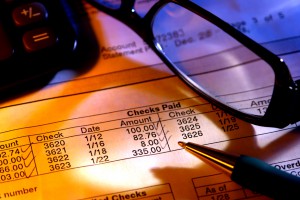AICPA Rule 101: Independence Required of Forensic Accountants
- At June 17, 2012
- By Miles Mason
- In Forensic Accounting
 0
0
The AICPA’s independence requirement for forensic accountants creates an opportunity for family lawyers to cross-examine inexperienced experts on tough potential conflicts of interest.
AICPA’s Code of Professional Conduct requires all CPA’s must be independent:
ET Section 101
Independence
Rule 101—Independence
A member in public practice shall be independent in the performance of professional services as required by standards promulgated by bodies designated by Council.
CPAs must be independent for many reasons. CPAs sign audit opinions. CPAs sign tax returns. CPAs tally the results for the Academy Awards. CPAs want us to trust them because they are CPAs. The public gets that. But there is a dark side to the profession. Since the beginning, CPAs have discussed, over adult beverages, the age-old question: “How can a CPA be truly independent of the businesses and persons putting food on that CPA’s table and paying part of his kids’ college tuition?” It doesn’t matter whether the services provided are the audit of a publicly traded corporation, with fees in excess of a million dollars paid to an international accounting firm, or the audit of a local medical practice owned by a solo practitioner. Clients matter. Personal relationships matter. Accounting fees matter.
Understanding this conflict, this duality, is at the heart of all cross-examinations of all expert witnesses. How can any expert witness be truly independent? If an expert’s opinion is adverse to the interest of the client, the attorney on the case, upon discovering that fact, is almost certain to immediately terminate the expert’s services. For a CPA providing litigation services, problems associated with the need for independence are more direct and transparent than those in any other aspect of that CPA’s career.
So, are forensic accountants who testify really independent? Take a look at the AICPA Code of Professional Conduct Interpretations under Rule 101, ET 101.05, which reads, in part, as follows:
Expert witness services create the appearance that a member is advocating or promoting a client’s position. Fn. 27 Accordingly, if a member conditionally or unconditionally agrees to provide expert witness testimony for a client, independence would be considered to be impaired. (Footnote 28 omitted.)
Footnote 27 provides, in part, the following:
However, even though there is an appearance of advocacy, when providing expert witness services, a member must comply with Rule 102, Integrity and Objectivity, which requires that a member maintain objectivity and integrity and not subordinate his or her judgment to others.
How can a CPA providing expert witness services truly be independent if the AICPA’s Code of Professional Conduct states that testifying as an expert witness impairs independence? When the interpretation quoted above describes impairing independence, its drafters probably meant that testifying impaired independence for attest functions, like auditing. Immediately following the quoted passage and footnote, there are references to an exception for impairing independence for auditing purposes. However, the drafters of the Code of Professional Conduct failed to explicitly qualify this language as primarily applying to independence when performing auditing functions. On cross-examination, if a lawyer carves this language out, it can be used to suggest that CPAs who testify as expert witnesses are not independent. The AICPA should either correct this problem or make the passage clearer in the context of testifying forensic accountants.
If polled, many experienced forensic accountants would disagree that being engaged as an expert witness to testify creates the “appearance [the CPA] is advocating or promoting a client’s position.” Forensic accountants are taught to advocate for their own opinion, not on behalf of a client. Again, most experienced forensic accountants would probably say that they are (and should be deemed) independent in fact, regardless of whether or not someone may question the appearance. Just because a forensic accountant is paid a fee for forming an opinion and testifying about that opinion on behalf of a client does not mean that forensic accountant is actually advocating for the client’s interest.
This blog post is an excerpt from The Forensic Accounting Deskbook: A Practical Guide to Financial Investigation and Analysis for Family Lawyers. Reprinted by permission. Copyright © 2011 American Bar Association. All rights reserved. No part of this publication may be reproduced, stored in a retrieval system, or transmitted in any form or by any means, electronic, mechanical, photocopying, recording, or otherwise, without the prior written permission of the publisher. Footnotes may be omitted from the original text.
Miles Mason, Sr., JD, CPA practices family law exclusively and is founder of the Miles Mason Family Law Group, PLC, in Memphis, Tennessee. Miles is the author of The Forensic Accounting Deskbook: A Practical Guide to Financial Investigation and Analysis for Family Lawyers, published by the American Bar Association. The Forensic Accounting Deskbook teaches lawyers, forensic accountants, and divorcing spouses how to uncover hidden income and discover hidden assets in complex divorces involving business owners and highly compensated corporate executives. The author, Miles Mason, Sr. has presented numerous seminars on divorce, family law, forensic accounting and business valuations at national and regional conferences for judges, divorce and family lawyers, forensic accountants, and business valuation experts. For a complete listing of speaking presentations, publications, and more of his professional biography, see Miles Mason, Sr.’s professional biography.










